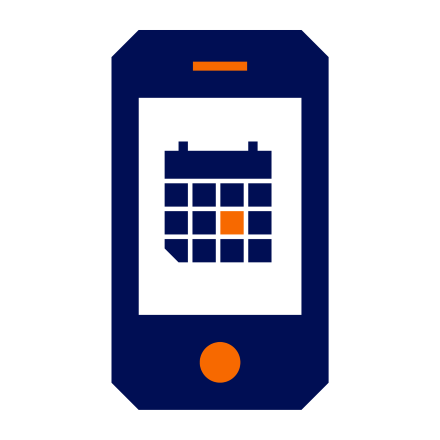



You play an integral role in promoting the holistic health and wellness of students. As parents, families, faculty, staff and friends, you can help connect students to health and wellness. Through education of important issues impacting college-aged students in addition to sharing information and resources, together, we can support student well-being.
Crisis Support
If you are experiencing a life-threatening emergency or you are in immediate danger, call 911.
Emergency Sexual and Relationship Violence
Consultation and Making a Referral
When having non-emergency concerns about a student, the following consulting and referral services are available to Syracuse University parents, family members, faculty, staff and friends.
The team is available for consultation surrounding Health Care, Counseling, leadership development, programs, services, cross campus collaboration, opportunities for student involvement and more. Call 315.443.8000 to learn more.
Barnes Center at The Arch Counseling
During a counseling consultation, the health and wellness team may do the following.
- Address the impact of bias-related incidents, sexual and relationship violence or other harassing and threatening behaviors on students.
- Consult about a particular student who is in distress or is struggling with a mental health concern.
- Design specific programming surrounding the mental health or wellness concerns that may affect unique student populations within the University community.
- Offer debriefings with groups of students after a campus death or other traumatic experience.
- Outline trainings available on mental health issues and strategies for helping students.
- Provide information about how to access our services.
When making a referral to counseling services, you may do the following.
- Call the Barnes Center at The Arch at 315.443.8000, or have the student call from your office to arrange an appointment.
- Agree that the student will independently contact the Barnes Center at The Arch Counseling team at 315.443.8000 to make an appointment.
As the hub for integrated student support, case managers help students no matter the issue or challenge. They are also a great resource if unsure where to start with a question or concern. Learn more by visiting the Student Outreach and Support website or by calling 315.443.2616.
This team coordinates access for students with disabilities through an interactive process involving CDR, the student, faculty and staff. Visit the Center for Disability Resources website or call 315.443.4498 to learn about referrals, the Disability Faculty Portal and more.
Supporting the Student Wellness Journey
From arriving to a new college environment to life’s transitions, students may at times feel disconnected. The following resources can help them meet new people and build connections.
- ’Cuse Activities (Registered Student Organizations)
- Barnes Center at The Arch Peer Educator Opportunities
- Be Involved Checklist (Create Student Experiences)
- Club Sports and Intramural Sports
- Esports (Designated Gaming Room, Virtual Events)
- Group Fitness Classes
- Hendricks Chapel (Faith Communities, Community Service Opportunities)
- Orange After Dark (Late-Night Programs)
- Outdoor Adventure Trips (Hiking, Snowshoeing, Apple Picking and More)
- Syracuse University Community Calendar (All Events)
- Tennity Ice Skating Pavilion
- The Daring Way™ Group Counseling
- Understanding Yourself and Others Group Counseling
Experiences of marginalization related to identity can have a significant negative impact on health and wellness. The following resources can help students explore their identity and build community.
- Barner-McDuffie House (Welcoming the campus community, especially Black students and those interested in Black history and culture, to relax, share, learn and grow.)
- Center for International Services
- LGBTQIAA+ Group Counseling
- Hendricks Chapel (Faith-Based Counseling)
- Intercultural Collective (Disability Cultural Center, LGBTQ Resource Center, Multicultural Affairs)
- Office of Diversity and Inclusion
- Recreation Programs (Celebrations and heritage months specific to climbing, esports, intramurals and fitness.)
- STOP Bias and Hate (Recognizing, Reporting and Preventing Bias-Related Incidents)
- Understanding Self and Others (USO): BIPOC Group Counseling
Diane Schenandoah ’11 is a Faithkeeper of the Wolf Clan, Oneida Nation, Haudenosaunee Confederacy energy worker, artist and singer. She utilizes the following techniques to further empower students. To learn more or make an appointment, please email Diane Schenandoah ’11, call 315.443.8000 or visit the Honwadiyenawa’sek webpage.
- Acupressure Points with Tuning Forks
- Dream Interpretations
- Energy Work
- Events
- Expression Through Clay
- Meditations
- Personal and Spiritual Guidance
As students establish routines and habits in a college environment, their physical wellness can sometimes be overlooked. The following resources can help them learn new practices and maintain good health.
- Gender Affirming Health and Wellness (Gender Affirming Care, Initiation of Gender Affirming Hormones and More)
- Health Care (Health Maintenance, Immunizations, Primary Care and More)
- Nutrition Counseling
- Open Recreation (Available Facilities: Barnes Center at The Arch, North Campus, South Campus)
- Personal Training
- Pharmacy and Retail Space (In-Person, Virtual)
- Safer Sex Supplies (Free Sexual Health Supplies Ordering, Delivery and Pick-Up)
- Student Health Insurance Plan
Between balancing academic, professional and personal responsibilities, students may express feelings of stress. The following resources can support stress reduction and management.
- Anxiety Skills Group Counseling
- Aquatics
- Climbing Wall
- Crowley Family MindSpa (Appointments offer space for meditation and mindfulness.)
- Deborah A. Barnes Pet Therapy Program
- Esports (Designated Gaming Room, Virtual Events)
- Group Fitness Classes
- Headspace
- Health Hubs
- Mindfulness and Meditation Program
- Nutrition Counseling
- Outdoor Education Programs
- Outdoor Adventure Trips (Hiking, Snowshoeing, Apple Picking and More)
As students navigate their college experience, they may face challenging decisions involving alcohol and other drugs. The following resources can support healthy decision-making.
- Alcohol-Free Programming (Orange After Dark)
- Options Alcohol and Other Drugs Workshops
- Options Prevention Group Counseling
- Seeking Sobriety Group Counseling
- Substance Free Theme Housing
- Wellness Education Workshops (Alcohol Safety, Narcan and Opioid Training, Cannabis, Tobacco and Vaping Education)
Through a student-focused lens of integrated health and wellness, this series explores a variety of Barnes Center at The Arch resources and services. In the pursuit of enhancing the student experience, topics empower faculty, staff, students, families and supporters as catalysts of health and wellness within their daily interactions. Be sure to revisit for updated topics!
- 4 Tips for Combatting Career Concerns
- Combating Stress and Building Mindfulness
- Cultivating Comfortable Cohabitation
- Exploring Inner Wellness Through Outdoor Adventure
- Gender Affirming Health and Wellness
- Intersecting Wellness, Diversity, Equity, Inclusion and Accessibility
- Loneliness and Connection
- Overcoming Challenges at New Heights
- Peer Educators and Campus Connections
- Personalized Wellness Education
- SoulTalk
- Strengthening Relationships
- The Art of Sleep
- Therapy and Community
- Transforming Student Well-being: Introducing the Dimensions of Wellness
Distressed Students
The college experience often marks a time of substantial personal, emotional, social and psychological growth. During this time, it is also common for students to experience various levels of distress. Some students will need additional support for addressing stressors or life challenges, and you have the ability to help a student in distress.
Know the signs of distress, how to respond and how to connect with the Barnes Center at The Arch health and wellness team when you notice difficulties are negatively impacting a student’s well-being. Learn more about additional educational resources such as Campus Connect, a suicide prevention training for gatekeepers.
- Alcohol or drug use.
- Avoidance and/or withdrawing.
- Declining grades.
- Exaggerated emotional responses inappropriate to the situation or environment.
- Fatigue, muscle pain, headaches, stomachache, etc.
- Inconsistent attendance.
- Marked changes in appearance or habits, such as deterioration in grooming or hygiene, dramatic weight loss, marked withdrawal in a normally outgoing person.
- Perpetually tired, anxious, depressed, irritable, angry or sad.
If you believe a student is experiencing severe distress, please call the 24-Hour Support line at 315.443.8000.
- Abuse (e.g. emotional, verbal, physical, sexual assault and relationship violence).
- Continued academic difficulties.
- Highly disruptive behavior.
- Loss of contact with reality.
- Self-injury.
- Significant interpersonal difficulties (e.g. isolation, inappropriate communication, conflicts).
- Suicidal thoughts.
- Threats of violence.
- Use of alcohol or other substances that interferes with academic or social life.
If you believe a student is experiencing a life-threatening emergency, call 911 (or 711 from an on-campus phone) immediately.
- Anger and anxiety.
- Depression or other mood changes.
- Drug or alcohol abuse.
- Feeling trapped and hopeless.
- Impulsiveness or recklessness.
- References indicating a desire to die.
- Statements indicating suicidal thinking.
- Suffering a major loss or life change.
- Withdrawal from friends/family.
It is important to trust your instincts and recognize your limitations when responding to a student in distress.
- If you believe a student is experiencing a life-threatening emergency, call 911 (or 711 from an on-campus phone) immediately.
- If you believe a student is experiencing severe distress, please call the Barnes Center at The Arch 24-Hour Support line at 315.443.8000.
- When a student is facing mild/moderate distress, below are some helpful tactics when responding to the student.
- Allow the student to talk freely.
- Do not promise confidentiality.
- Encourage the student to seek support services.
- Help the student to clarify the problem.
- Identify possible campus resources.
- Identify what has worked in the past.
- Respect and accept the student’s value system.
- Take them seriously; ask directly about what is going on.
Prosocial Bystander Intervention
Bystanders are individuals that observe or witness an event or situation they are not directly involved in. Bystanders have the potential to do nothing, contribute to negative behavior or attempt to make a positive impact on the situation.
Prosocial bystanders are individuals that intervene to make a positive impact on the situation. We expect our community members to act as prosocial bystanders in risky or harmful situations such as alcohol poisoning or drug overdoses, bullying or harassment, relationship violence, stalking, sexual violence, or any other form of interpersonal violence. To safely intervene and care for your community members is what it means to Be Orange.
Is something wrong?
Sometimes it can be challenging to determine whether to intervene, but recognizing warning signs can include changes in behavior, medical emergencies, etc.
What do I do to help?
In most cases, there is not a perfect way to intervene. There are different approaches that you can take to intervening. Remember the five Ds:
- Distract: Derail the incident by interrupting it.
- Delegate: Ask a third party to help with intervening.
- Delay: Speak to the individual(s) after the incident to see if they are okay or need support.
- Direct: Directly confront the person doing harm if it is safe to do so.
- Document: Record or take notes of an incident, and ask the individual(s) after the incident what they want to do with the documentation.
Why should I help?
Prosocial bystanders’ sense of responsibility and care often outweigh their fears and worries. This may look like:
- Being protective of your friends.
- Having empathy towards the individual(s).
- Feeling an obligation/duty to help.
- Feeling angry or guilty about the harm being done.
